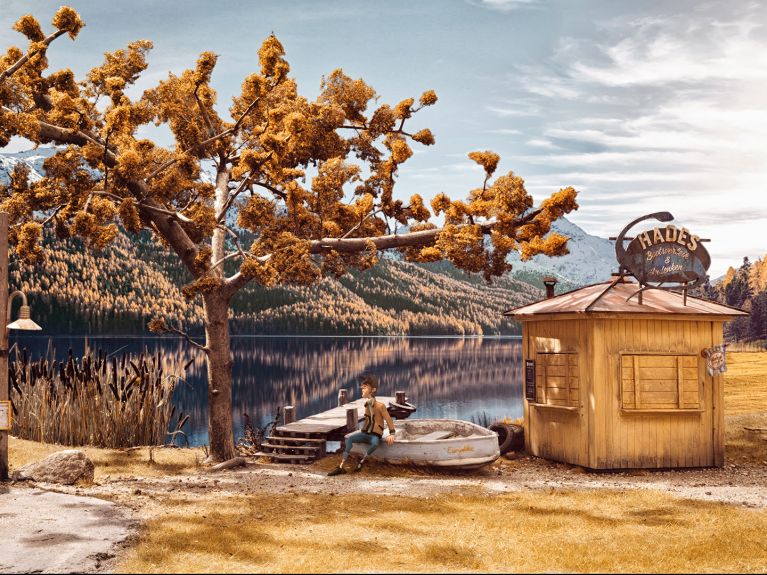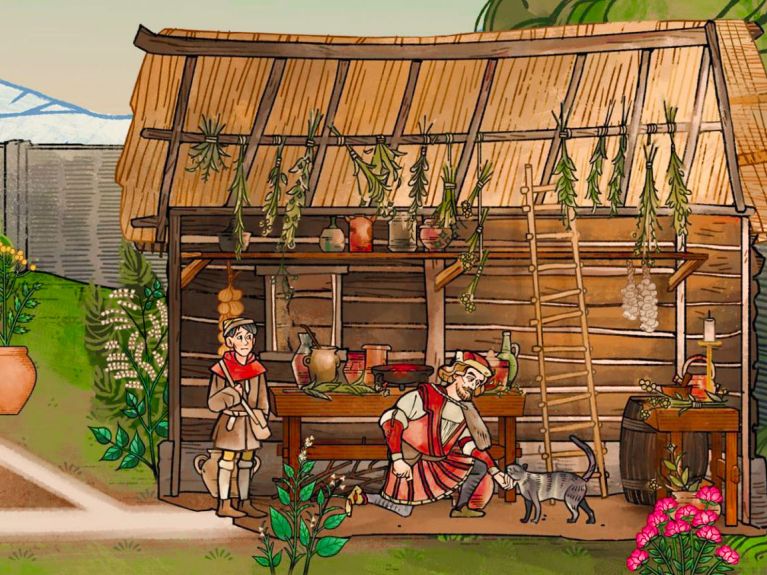German locations in video games
Germany appears in many video games, be it mediaeval abbeys or Berlin clubs. The attraction of real-life places in games.

Bavaria in the 16th century. The master artist Andreas Maler attempts to solve a series of murder cases in the small town of Tassing near Kiersau Abbey. However, neither the town nor the abbey ever existed, and nor did Andreas Maler. This is merely the plot of “Pentiment”, a computer game created by Josh Sawyer, design director at the Californian development studio Obsidian Entertainment.
The fact that the game sounds so realistic is thanks to the many authentic details taken from German history. The main character was inspired by the Nuremberg painter Albrecht Dürer. The invented town’s abbey is reminiscent of Ettal Abbey in Upper Bavaria, and many of the plot elements did actually feature in the region: Lansquenets, legendary figures such as Perchta, the “leader of the Wild Hunt”, and the tradition of the St. John’s bonfire.
Sawyer is not the only one to decide to involve German locations in his game. Back in 1992, “Darklands” was also set in the German Middle Ages. Many other locations have been added over the past few years: The 2018 tactical game “All Walls Must Fall” is set in Berlin night clubs in the year 2089 - in an alternative reality in which the Cold War never ended. The 2019 adventure game “Trüberbrook” takes players back to a German climatic spa in the 1960s. The names of the protagonists– Tannhauser and Gretchen – recall characters created by Richard Wagner and Johann Wolfgang von Goethe. And “A Bavarian Tale”, released in early 2023, is another crime-based game set against a southern German backdrop.

The combination of fiction and reality, of entertainment and education, has considerable potential. More than half of all Germans regularly spend time playing video games. Josh Sawyer sees this as an opportunity: “One can embed a fictitious scene within a historical context and tell a great story that is also educational.” He is not short of ideas for other games in Germany, either. “I believe that the interwar period and the Weimar Republic are extremely interesting and have hardly been explored at all in games so far.”


